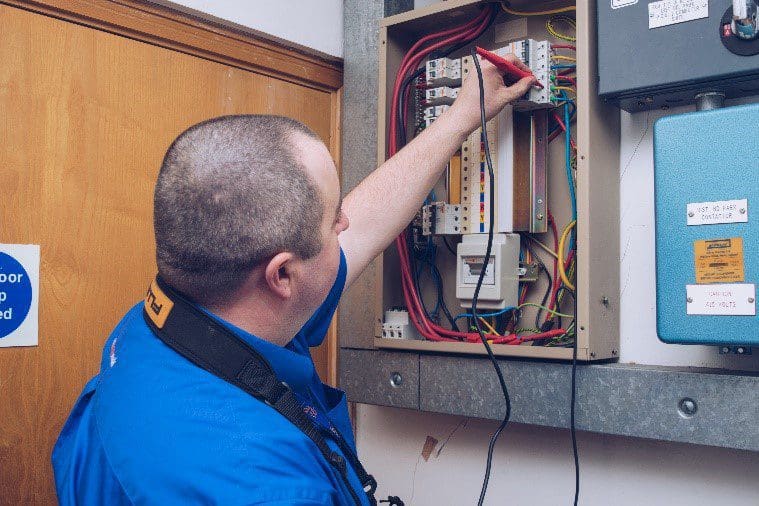Following an electrical inspection, an EICR report will be provided, in which you’ll receive information on the condition of your electrical systems, and whether your electrical infrastructure is satisfactory or unsatisfactory for further use.
For buildings that are determined to be unsatisfactory, the EICR report will highlight any electrical faults found, along with the level of risk posed. There are four EICR faults you must be aware of:
EICR C1: There is a danger present, risk of injury and immediate remedial action required
EICR C2: There is a potential danger present and urgent remedial work is required
EICR C3: Improvement is recommended
EICR F1: Further investigation required without delay
EICR C1
Receiving a C1 rating following your EICR test means that there’s a high risk of injury to anyone who uses the installation, and that immediate remedial action is required. An example of a C1 code would be damage to the installation, poorly modified enclosures or removed maintenance panels that leaves live conductors exposed and accessible.
As well as this, incorrect polarity would also cause you to get a code C1 as it may lead to conductive parts that aren’t normally expected to be live, becoming live. In cases of C1 classification, it’s highly recommended that you don’t use your electrical system until that fault has been fixed.
EICR C2
While less severe than a C1 rating, a C2 still means that something on your installation has the potential to be dangerous and cause injury to anyone in the vicinity. This could be anything from a lack of reliable earthing to an RCD that does not trip when tested. If these aren’t remedied, over time they could worsen and lead to a shock risk, which is why all C2 EICR codes require urgent remedial action.
EICR C3
Receiving a C3 EICR rating means that the electrician has spotted things that need improving for your electrical installation, such as out-of-date wiring that doesn’t meet the latest regulations but isn’t a risk to you or your team.
With this, while EICR certificates can still be satisfactory even when C3 level issues are found, it’s advised to have all C3 issues rectified to improve the safety of your electrical installation, as well as to avoid any issues snowballing and becoming more expensive to rectify down the line.
EICR FI
Lastly, you could receive an FI, which stands for Further Investigation. This is usually when the electrician or electrical engineer carrying out the EICR notices something that doesn’t necessarily breach the B2 7671 standards, like a circuit that hasn’t been verified at the time of testing.
As FI codes have the potential to class your electrical installation as unsatisfactory, it means that in all cases of an FI certification, further investigation is needed straight away. This is because it would be irresponsible of the electrical engineer to state the installation is satisfactory overall.
EICR codes can be complicated or unclear if you aren’t sure how they apply to your business or most recent inspection, but they don’t have to be.
Following an electrical inspection, our team of specialists at BES Group will discuss their findings and highlight any next steps to ensure complete electrical compliance at your site. Our accredited team of electrical engineers can also provide follow-up corrective services with minimal disruption to your daily operations.

